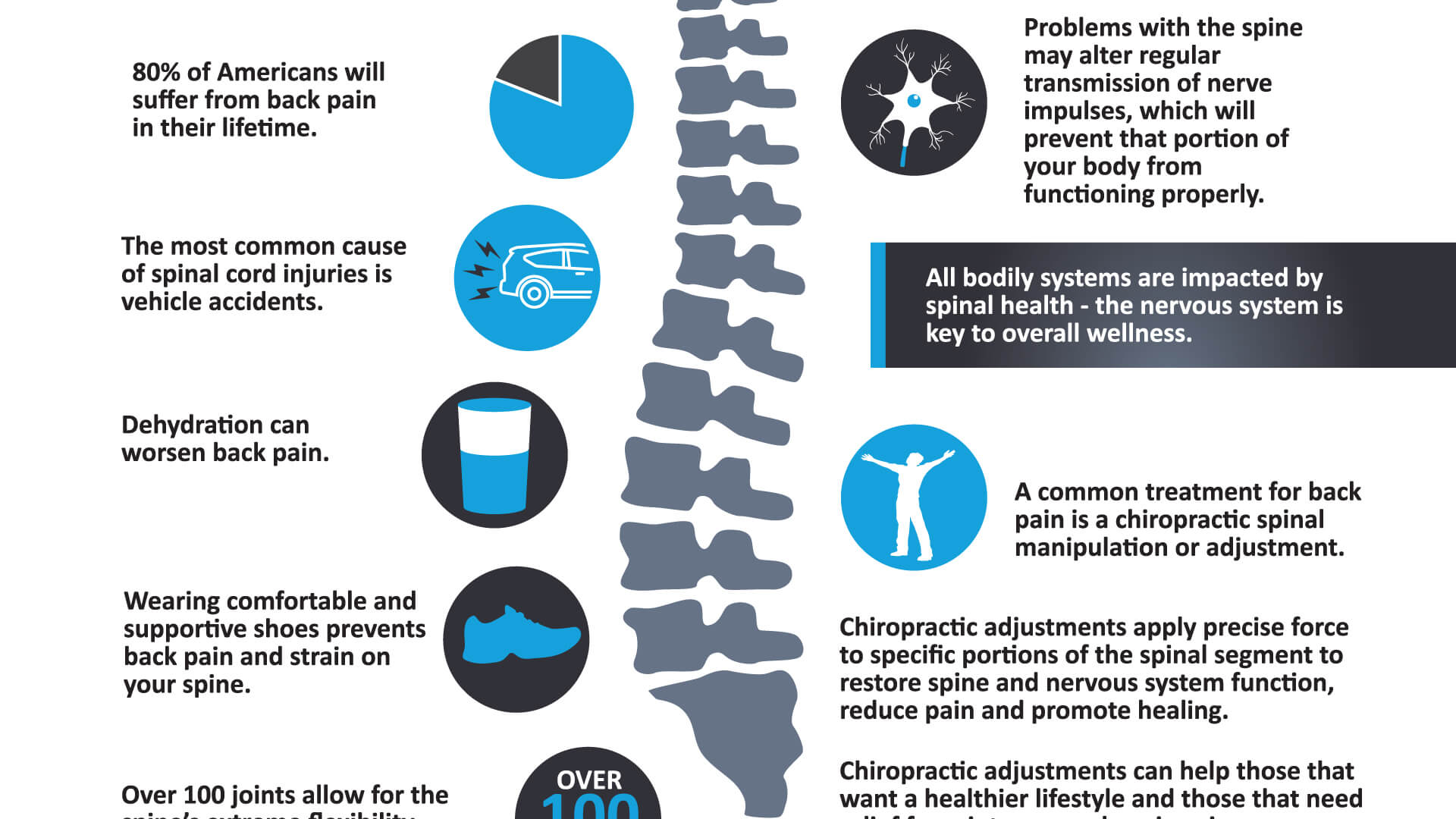Nourishment'S Influence On Back Pain Alleviation: Dietary Choices To Accept And Those To Stay Away From
Nourishment'S Influence On Back Pain Alleviation: Dietary Choices To Accept And Those To Stay Away From
Blog Article
Material By-Singer Guldborg
When it comes to managing your pain in the back, the food choices you make can substantially influence just how you feel every day. Picture being able to alleviate your discomfort just by readjusting what you consume. By understanding the function of nourishment in neck and back pain management and understanding which foods to integrate or steer clear of, you can take proactive steps in the direction of a healthier and more comfortable way of life. The connection in between nourishment and back health and wellness is more extensive than you might understand-- allow's check out just how particular foods can either soothe or intensify your pain in the back.
Importance of Nourishment in Back Pain
Nutrition plays a crucial role in managing back pain. Your diet plan can dramatically influence swelling degrees and overall pain levels in your back. Taking in a well balanced diet regimen rich in nutrients like vitamins D and K, calcium, magnesium, and omega-3 fatty acids can help in reducing swelling and reinforce bones, which are essential for back health.
In addition, preserving a healthy weight with proper nutrition can reduce anxiety on your spine, decreasing the danger of pain in the back.
In https://israeljezto.madmouseblog.com/11132584/the-5-main-benefits-of-going-to-a-chiropractic-doctor-accomplishing-discomfort-relief-and-supporting-overall-health , specific nutrients like anti-oxidants located in vegetables and fruits can aid deal with oxidative stress and promote healing in the body, including the back muscular tissues and spine.
On the other hand, consuming excessive amounts of processed foods, sweet beverages, and unhealthy fats can contribute to inflammation and weight gain, worsening pain in the back.
Foods to Eat for Back Health And Wellness
To support a healthy and balanced back, incorporating nutrient-rich foods right into your daily meals is essential. Including foods high in antioxidants like berries, spinach, and kale can help in reducing inflammation in your back, relieving discomfort and pain. Omega-3 fatty acids discovered in fatty fish such as salmon and mackerel have anti-inflammatory residential or commercial properties that can benefit your back health and wellness.
Furthermore, taking in nuts and seeds like almonds, walnuts, and chia seeds provides essential nutrients like magnesium and vitamin E, which sustain muscle mass feature and lower oxidative stress and anxiety. Incorporating lean proteins such as hen, turkey, and tofu can assist in muscular tissue repair work and upkeep, promoting a strong back.
Do not forget to include dairy products or strengthened plant-based alternatives for calcium to support bone wellness. Finally, hydrate with plenty of water to maintain your spinal discs hydrated and functioning efficiently. By consisting of these nutrient-dense foods in your diet regimen, you can nourish your back and assistance total back health.
Foods to Prevent for Back Pain
Choose avoiding refined foods high in sugarcoated and trans fats when seeking relief from neck and back pain. These types of foods can contribute to inflammation in the body, which may aggravate back pain. Say no to sugary treats like candy, pastries, and sweet beverages, in addition to junk food items like hamburgers, french fries, and fried poultry that are typically packed with trans fats.
Furthermore, stay away from foods having high degrees of refined carbohydrates, such as white bread, pasta, and breads, as they can spike blood glucose levels and potentially aggravate inflammation in the body.
lower back tightness and pain 's also wise to limit your consumption of foods high in saturated fats, like red meat and full-fat milk products, as they can contribute to inflammation. Refined foods like delicatessens meats, chips, and packaged snacks are often high in saturated fats and must be eaten in small amounts.
Final thought
In conclusion, taking note of your diet and making clever food selections can have a significant effect on taking care of pain in the back. By incorporating nutrient-rich foods like berries, fatty fish, nuts, and lean proteins, and staying clear of processed and sugary products, you can help reduce inflammation and support generally back health. Remember, what you eat plays a critical role in how you feel, so make certain to prioritize your nourishment for a much healthier back.
